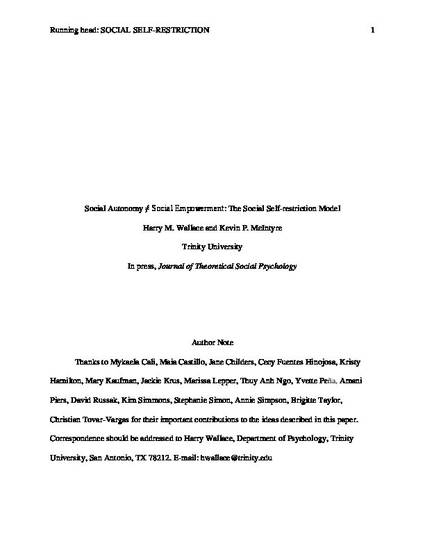
This paper introduces the social self-restriction (SSR) model, which highlights a drawback associated with the increasingly accessible privilege of social autonomy. Social autonomy enables individuals to connect with preferred social partners and avoid undesirable others. The benefits of social autonomy are undeniable; however, the SSR model makes the novel assertion that people tend to exercise social autonomy in ways that ultimately constrain their potential for social empowerment—a higher-order form of personal freedom. Attaining the ideal of high social empowerment requires both high social autonomy and high social adaptability. People with high social adaptability can feel reasonably comfortable and act competently in social environments they did not choose to inhabit. Unfortunately, people with high social autonomy are unlikely to possess high social adaptability. We propose that social autonomy undermines social adaptability by tempting people to avoid social challenges and socialize selectively with similar others in familiar contexts, a habit that limits social skill development, promotes social intolerance, and distorts social perceptions. In essence, we argue that social autonomy allows people to live in their social comfort zones, at the cost of restricting their social range. Our discussion of the SSR model incorporates evidence and perspectives from a broad range of academic disciplines, and includes consideration of opportunities for future research.
